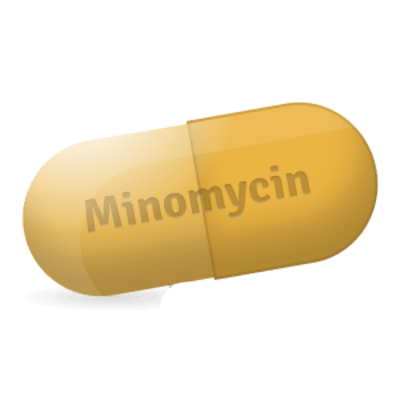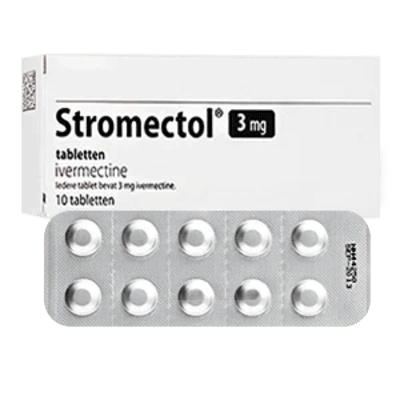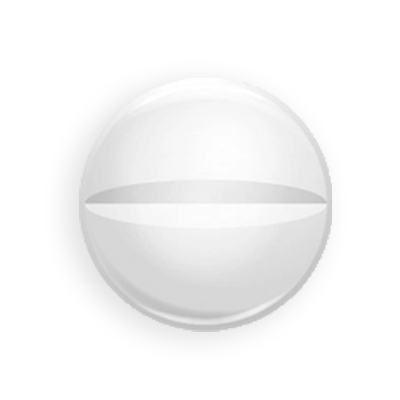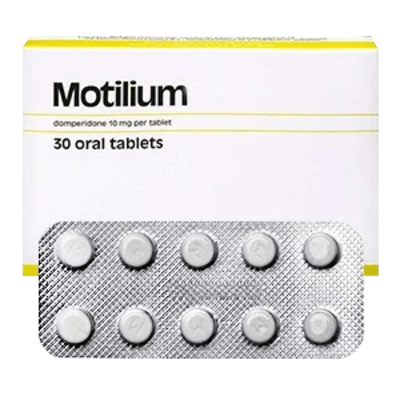Used Minomycin to treat acne and the results were truly impressive. Noticed significant improvements in my skin after just a couple of weeks. Side effects were virtually non-existent, except for mild nausea in the first few days.

Minomycin
- Quality products
- Support 24/7
- Fast delivery
What is it?
Minomycin is an antibiotic of the tetracycline group and contains the active substance minoccycline. Its main purpose is to treat various bacterial infections, including those of the respiratory tract, skin, genitourinary system and eyes. The action of the drug is based on the inhibition of protein synthesis in bacterial cells, which prevents their reproduction and helps eliminate the infection. Minoccycline is effective against a wide range of bacteria, but the use of the drug should be based on the results of tests for the sensitivity of microorganisms to antibiotics. Minicin is prescribed by a doctor after assessing the indications and possible contraindications, which emphasizes its importance in the treatment of bacterial infections.
Composition
The main component of Minomycin is minoccycline hydrochloride, which provides an antibacterial effect. This substance actively fights bacteria, blocking their ability to reproduce and causing their gradual destruction. This feature makes the drug effective against many bacterial infections.
The composition of Minomycin also includes excipients necessary to stabilize the formula and ensure ease of use. Common components include:
- Magnesium stearate, which acts as a lubricant for uniform distribution of the substance in the capsule.
- Starch, serves as a filler and stabilizer.
- Dyes that give the capsules a certain color for easy identification.
These components rarely cause side effects, but it is worth familiarizing yourself with their list for individual intolerance.
How to use?
Minomycin should be used strictly according to the doctors instructions, since this antibiotic requires a special approach to achieve a therapeutic effect and prevent the development of bacterial resistance. The effectiveness of the drug directly depends on the correct adherence to all recommendations for its use.
Minomycin capsules are taken orally with a sufficient amount of water. To avoid irritation of the esophagus, it is recommended to be in an upright position for at least 30 minutes after taking. The optimal time for taking is 1-2 hours after eating, which promotes improved absorption of the active substance into the body.
- Take the capsules without chewing or breaking.
- Do not lie down immediately after taking the capsules to prevent irritation of the esophagus.
- Observe the time interval for taking relative to food to improve absorption.
How does it work?
The action of Minomycin is based on the activity of minoccycline, a component of the tetracycline antibiotic group. Its main task is to prevent the reproduction of pathogenic microorganisms by disrupting their protein synthesis. This leads to inhibition of bacterial growth, followed by their elimination by the bodys immune system.
The drug is effective against a wide range of bacteria, including gram-positive and gram-negative species. This makes it a universal treatment for infections such as acne, respiratory tract inflammation and genitourinary infections. Minoccyclines high resistance to enzyme degradation ensures the drugs long-term action after administration, which enhances its effectiveness.
Minomycin acts systemically, distributing throughout the tissues and fluids of the body, which allows it to fight infections in various locations. This characteristic makes the drug especially valuable in situations where extensive therapeutic support is needed.
Indications
Minomycin has a broad spectrum of indications due to its extensive antibacterial potential. This makes the drug an important tool in the treatment of various infectious diseases caused by sensitive microorganisms.
The main indications for Minomycin include:
- Respiratory tract infections such as bronchitis or pneumonia, especially when the bacteria are resistant to other antibiotics.
- Skin infections, including severe forms of acne, which are poorly treatable with other drugs.
- Genital-urinary infections requiring specific antibacterial therapy.
- Eye infections requiring a powerful antimicrobial effect.
- Some forms of bacterial meningitis requiring intensive therapy.
These indications highlight the importance of using Minomycin in the treatment of complex infectious conditions.
Contraindications
Despite the effectiveness of Minomycin, its use has certain limitations that should be taken into account when prescribing the drug. The drug is contraindicated in the presence of an allergy to minoccycline or other antibiotics from the tetracycline group due to the risk of developing allergic reactions and complications.
The list of contraindications for Minomycin also includes:
- Severe liver or kidney disease, as they affect the metabolism and elimination of the drug from the body.
- Children under 8 years of age due to the risk of damage to tooth enamel and bones during growth.
- Pregnant and lactating women, as the drug can negatively affect the development of the fetus or child.
These restrictions emphasize the need for a thorough assessment of the patients condition before starting treatment with Minomycin.
Side effects
Minomycin may be accompanied by side effects that vary in severity. Although rare, it is important to be aware of possible negative reactions of the body in order to take timely measures.
The most common side effects include:
- Gastrointestinal disorders such as nausea, vomiting or diarrhea, which may be associated with the effect on intestinal microflora.
- Allergic reactions, which may manifest as a skin rash, itching or swelling and require immediate medical attention.
- Headaches and dizziness, which can interfere with daily activities, especially with long-term use of Minomycin.
If any symptoms appear, you should immediately consult a doctor for advice and, possibly, adjustment of therapy.
Frequently asked questions
Minomycin Reviews and Experiences
After a course of Minomycin, the bronchitis that had been bothering me for quite a long time finally subsided. The drug really helped, despite the fact that the previously used medications did not give results. The only inconvenience is that you need to strictly follow the recommendations for taking it to avoid stomach irritation.
Minomycin was prescribed due to a genitourinary infection. The medicine solved the problem, but headaches appeared, which lasted for almost a week. I don’t know if anyone else had the same problem, but I don’t regret taking the course, as the effect was achieved.









